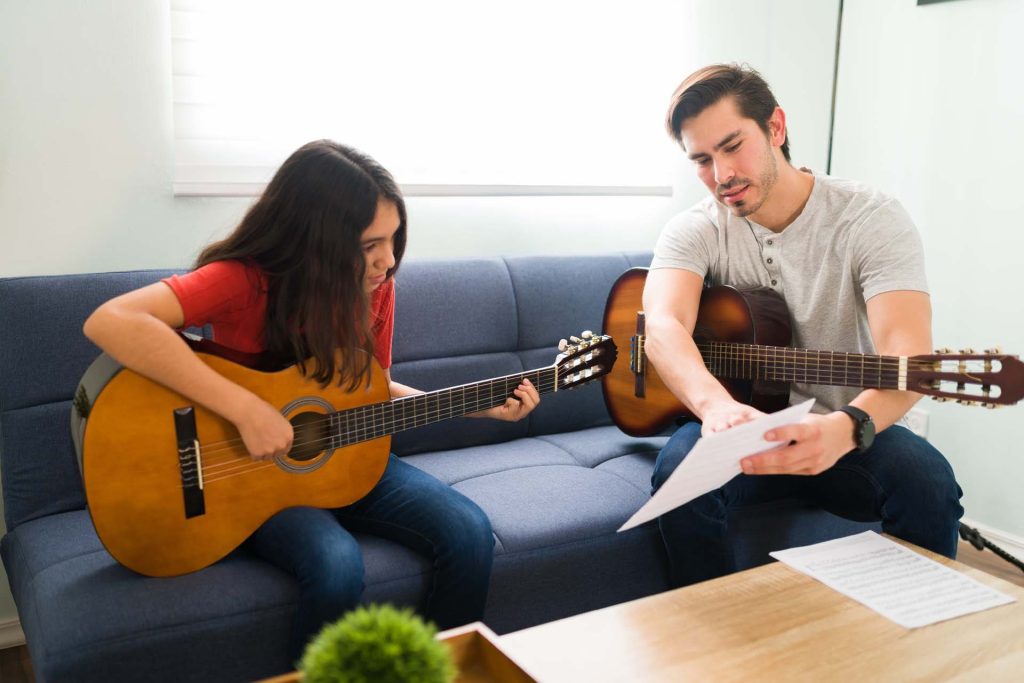Singapore Guitar Schools: Your Complete Learning Guide

Discovering where to learn guitar in Singapore requires careful consideration of location, teaching quality, and learning environment preferences. The island nation boasts an impressive array of music education facilities, from established institutions in heritage districts to modern studios in residential neighbourhoods, each offering unique advantages for aspiring guitarists.
Singapore’s compact geography means excellent guitar instruction remains accessible regardless of your location. The efficient MRT system connects music hubs across the island, whilst numerous neighbourhood options ensure convenience for regular lessons.
Traditional Music Districts and Established Areas
The Bras Basah Complex area stands as Singapore’s historical music epicentre. This bustling district houses numerous music shops alongside established teaching studios, creating an immersive musical environment. Students benefit from the concentration of musical resources, allowing easy access to instruments, accessories, and sheet music between lessons.
Orchard Road’s music scene offers premium learning environments with state-of-the-art facilities. Many studios in this area feature professional-grade equipment and acoustically treated rooms, providing optimal learning conditions for serious students.
The Clarke Quay vicinity combines historical charm with modern musical education. Studios here often occupy converted shophouses, blending Singapore’s architectural heritage with contemporary teaching methodologies.
Residential Area Music Studios
Neighbourhood-based guitar instruction has flourished throughout Singapore’s housing estates. These locally situated studios offer several compelling advantages:
- Convenience for regular attendance without lengthy commutes
- Lower rental costs often reflected in more affordable lesson fees
- Intimate learning environments with smaller class sizes
- Community connections fostering local musical networks
- Flexible scheduling accommodating varied lifestyle demands
Tampines, Jurong, and Ang Mo Kio have emerged as particularly vibrant areas for residential music education, with multiple qualified instructors establishing practices within these mature estates.
Shopping Mall Music Centres
Singapore’s extensive shopping mall network hosts numerous music education facilities. These locations provide climate-controlled comfort and convenient parking, particularly appealing to families with young learners.
Major shopping centres like Plaza Singapura, Northpoint City, and Westgate feature dedicated music zones housing multiple teaching studios. The retail environment offers additional benefits, including nearby food courts for post-lesson refreshments and easy errand combination opportunities.
Community Centres and Grassroots Programs
Singapore’s community centre network provides accessible guitar learning opportunities across all neighbourhoods. These government-supported facilities often offer subsidised rates, making music education affordable for diverse socioeconomic backgrounds.
Community centre programs typically feature:
- Structured beginner courses for various age groups
- Ensemble opportunities and performance platforms
- Integration with other community activities and events
- Qualified instructors vetted through established procurement processes
One experienced community centre instructor observed, “The beauty of neighbourhood-based learning lies in building lasting musical relationships. Students often continue jamming together long after formal lessons conclude, creating genuine musical communities.”
Private Home Instruction Options
Many qualified guitar teachers offer home-based lessons, bringing instruction directly to students’ residences. This personalised approach suits busy professionals, young children, or individuals preferring private learning environments.
Home instruction benefits include customised lesson timing, familiar surroundings reducing performance anxiety, and elimination of travel time. However, students miss the social aspects and equipment variety that studio-based learning provides.
Online and Hybrid Learning Platforms
Digital technology has revolutionised guitar education accessibility in Singapore. High-speed internet infrastructure enables seamless online instruction, whilst hybrid models combine digital resources with periodic in-person sessions.
Virtual learning platforms offer:
- Flexible scheduling across time zones
- Access to international instructors and specialised techniques
- Recording capabilities for practice review
- Cost-effective lesson options
- Supplementary resources and community forums
Factors Influencing Location Choice
Selecting optimal guitar learning locations requires balancing multiple considerations. Proximity to home or workplace significantly impacts lesson consistency, particularly given Singapore’s busy lifestyle demands.
Transportation connectivity deserves careful evaluation. MRT accessibility, parking availability, and traffic patterns during lesson times all influence long-term attendance sustainability.
Studio facilities and equipment quality vary considerably across locations. Some students prioritise professional-grade amplifiers and recording equipment, whilst others value comfortable seating and adequate lighting more highly.
Age-Specific Location Considerations
Children often benefit from community centre or shopping mall locations, where parents can combine lessons with other activities. The social environment helps young learners develop confidence and musical friendships.
Adult learners frequently prefer discrete residential studios or home instruction, avoiding the potential embarrassment of learning alongside significantly younger students.
Senior citizens typically appreciate ground-floor studios with easy access and nearby amenities, making lessons part of broader social and recreational routines.
Specialist Genre Locations
Certain areas of Singapore have developed reputations for specific guitar styles. Jazz and classical instruction concentrates around established music institutions, whilst rock and contemporary styles flourish in more alternative venues.
Some studios specialise in particular demographics or learning approaches, such as Montessori-inspired music education for young children or therapeutic music programs for special needs students.





